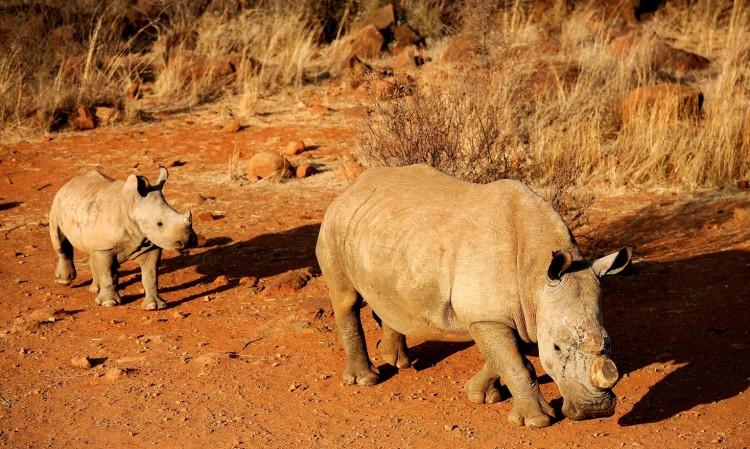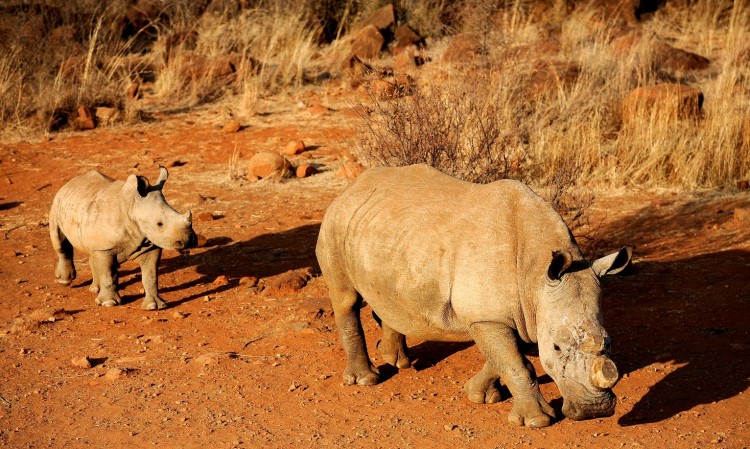Poachers have already killed a record number of South African rhinos so far—455—in 2012, surpassing last year’s record of 448, reported the South African Environment Ministry Tuesday.
Demand for the animals’ horns has spiked in recent years, focused mostly in China and Vietnam. Wealthy consumers there believe the horns can cure cancer, while some have said the horns can detoxify the body after too much food and alcohol consumption. However, Swiss pharmaceutical firm Hoffmann-La Roche studied the horns, finding they are composed mainly of keratin, the same substance as hair and fingernails, and have no medicinal properties.
Simply having possession of a rhino horn is seen as a status symbol, at least in Vietnam, said the Save the Rhino conservation group. In October, it was reported that a wealthy Vietnamese banker’s gilded rhino horn, from an animal that was apparently shot in 2006, was stolen.
South Africa has the largest population of rhinos in the world, more than 20,000, and about 90 percent of Africa’s total rhino population. There are also about 1,600 of the critically endangered black rhino in the country.
The majority of the rhinos killed this year, 272, were in the Kruger National Park, one of the largest game reserves in all of Africa, the environment ministry said. Poachers were most prevalent in the provinces of KwaZulu-Natal, Limpopo, and the North West.
South African authorities are attempting to curb poaching, as 179 poachers were arrested in 2012 so far, the ministry added.
Dr. Jo Shaw, World Wildlife Fund–South Africa’s rhino coordinator, is quoted on the group’s website urging the government to take action: “The world is watching to see that South Africa is prepared to prosecute rhino crimes to the fullest extent of the law and take these crimes seriously as an affront to South Africa’s national heritage.”
South Africa, she said, should “engage with consumer countries and fight against international syndicates involved in illegal rhino horn trade.” Shaw said an agreement made between the South African government and Vietnam to curb the trade of rhino horns remains unsigned.
WWF is calling on relevant governments around the world who are impacted by the illegal trade of wildlife parts to step up law enforcement and curb the practice.
“To date, rhino numbers continue to grow in South Africa as more rhinos are being born than are dying,” said Shaw. “However, we are approaching the critical tipping point where rhino numbers go into decline and would undermine conservation efforts.”
The Epoch Times publishes in 35 countries and in 19 languages. Subscribe to our e-newsletter.






